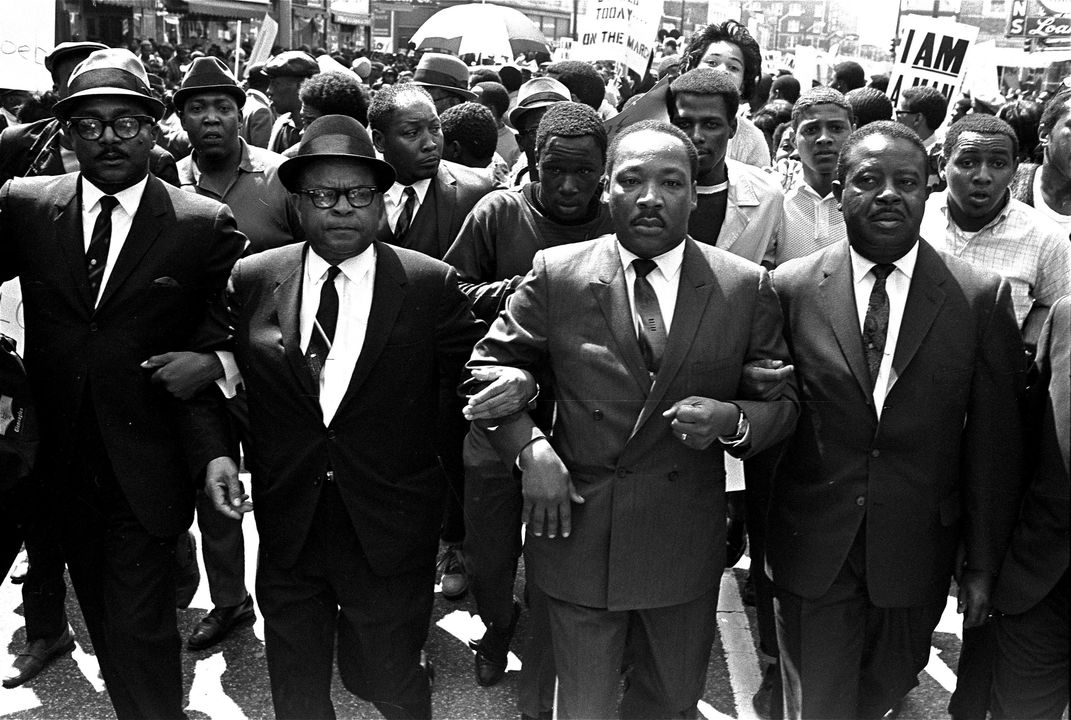AFSMCE workers have always had a pivotal role in the fight for racial justice and equity. The events of February 1968 involving Memphis sanitation workers – AFSCME members then and now, would bring the civil rights movement to boiling point and bring Dr. Martin Luther King Jr. and other civil rights movement leaders to Memphis to rally around workers. Dr. King delivered his final “I’ve Been To The Mountaintop” speech to a congregation at the Mason Temple in Memphis, Tennessee on April 3rd, 1968, one day before he was assassinated.
To understand the culmination of these events, we need to back up a little bit. Sanitation workers in Memphis were chartered by AFSCME in 1964 and attempted to go on strike but failed in 1966. Already onerous working conditions for a job that defined the Jim Crow status quo somehow worsened with the election of rigid segregationist Henry Loeb in January 1968. After workers Echol Cole and Robert Walker took refuge from the pouring rain in the back of a garbage truck on February 1, 1968, the truck compactor malfunctioned and crushed both men to death. Workers took demands to Mayor Loeb for outdated equipment to be removed from service and basic safety equipment like gloves and coveralls shortly thereafter. When the Mayor refused, workers voted to go on strike on February 12, 1968.
Civil rights leaders from across the country traveled to Memphis in support of the sanitation workers’ strike for better working conditions. On March 28th, 1968 demonstrators took the streets in a citywide support of the strike. Mayor Loeb declared martial law and deployed 4,000 National Guardsman to dispel demonstrators. On the following day, March 29th, nearly 200 sanitation workers resumed demonstrations, this time holding the iconic signs that simply read “I Am A Man.”
Dr. King would deliver his final speech a few days later on April 3rd, 1968 at the Mason Temple in Memphis. On April 8th, Coretta Scott King, union leaders and civil rights activists would lead a silent march of 42,000 people through the city to honor Dr. King and demand Loeb concede to the union’s demands. Loeb still adamantly refused, but on April 16th, negotiators led by President Johnson’s Undersecretary of Labor, James Reynolds, reached a settlement, including recognition of the union, which still exists today as AFSCME Local 1733.
For more information about the important work our union is doing today in the fight for racial and economic justice, please click here to learn more about the 50th anniversary I AM 2018 campaign.
